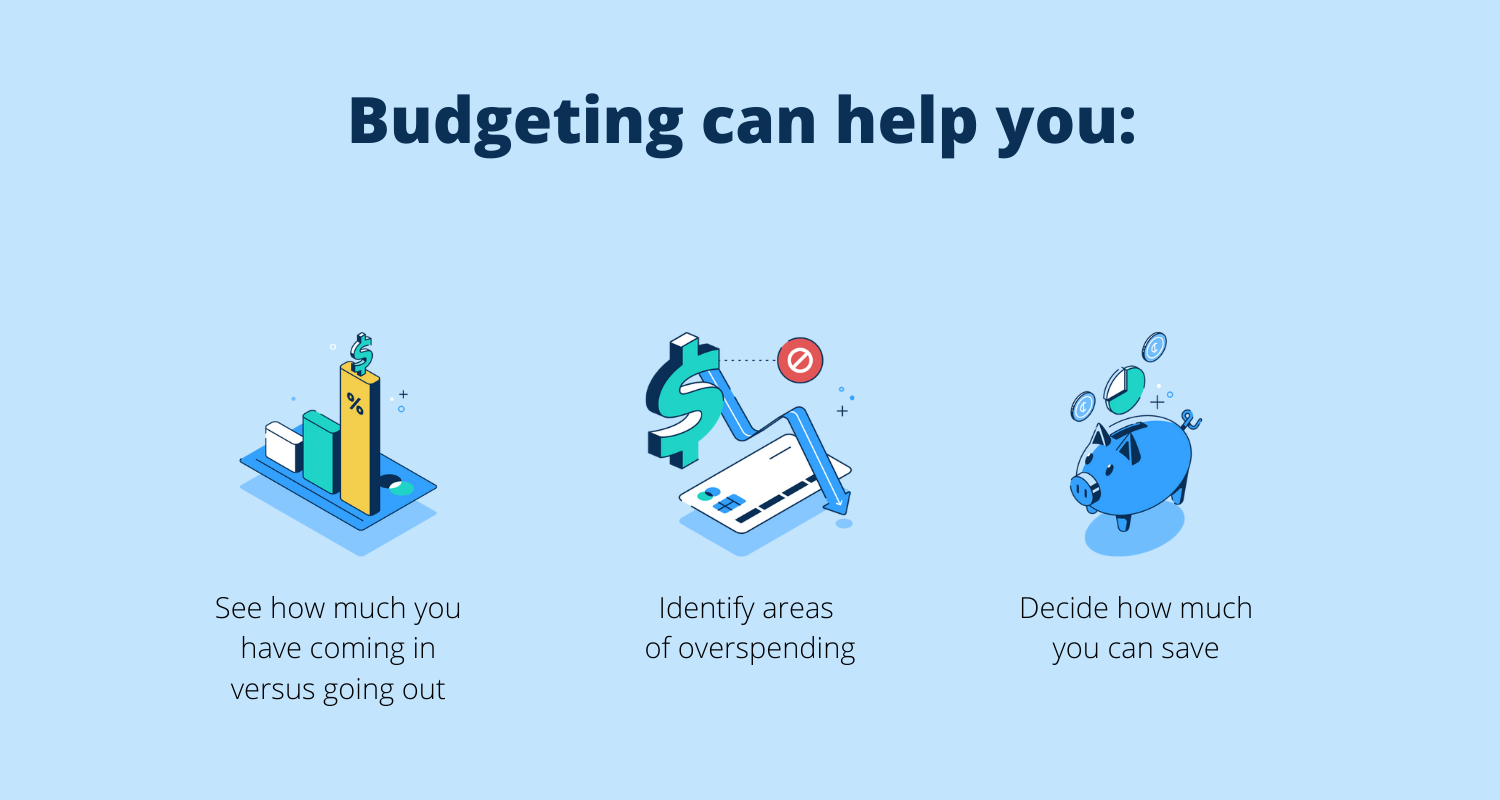
The information provided on this website does not, and is not intended to, act as legal, financial or credit advice. See Lexington Law’s editorial disclosure for more information.
Many Americans don’t closely track their finances or know what their current credit score is. Being financially literate, especially when it comes to credit usage, can make it much easier to manage your finances and, over time, improve your situation. The good news is that numerous personal finance tools are available today to make things easier than ever.
Keep reading to learn more about the top four personal finance tools you should start using today.
What are financial tools?
Financial tools are apps or services that help you track and manage your financial transactions. These tools can help you stay within your spending limits, meet your financial goals and make informed financial decisions.
Today, you can access many of these tools online through a secure platform or app. For many, these tools are an essential part of financial management. They help simplify the financial tracking process and make it easier to understand your current financial status.
Top 4 types of personal finance tools available
1. Budgeting tools
Financial freedom doesn’t just happen overnight. It takes careful planning and continuous tracking of where you spend every dollar. This is why maintaining a personal budget is so important. Keeping a budget can ensure you’re saving enough to meet your future needs, preventing you from spending more money than you earn and helping you create an emergency fund.
Fortunately, you no longer need to rely on pen and paper to keep a budget and track your spending. Instead, there are a number of online tools you can use to quickly track where you spend every dime. While Mint has been a popular budgeting tool for many consumers, it’s ceasing operations as of January 1, 2024. Whether you’re looking for a Mint replacement or your first budgeting app, here’s a look at the top options available.
- You Need A Budget: Commonly referred to as YNAB, this tool uses the zero-based budget system to track every dollar you earn and spend. The easy-to-use finance tool lets you link all your accounts, including bank accounts, credit cards and loan payments, to help you get a clear view of your financial status.
- Goodbudget: This online tool uses the popular envelope budgeting system to ensure you’re tracking every dollar you spend. While you can’t link your bank account to Goodbudget, you can import data from your bank to keep everything up to date. The app shows you how much money you have left to spend in each category.
- PocketGuard: PocketGuard is a simplified budgeting tool that links to your bank accounts, credit accounts and loans. It automatically tracks your bills to let you know how much you have left to spend. While it doesn’t have all the special features you might find with other budgeting apps, it’s a good choice for those who prefer a straightforward approach to budget tracking.
- HoneyDue: This online budgeting tool is ideal for couples who want to sync their accounts. It lets users customize their own settings for what information they want to share with each other and how to split expenses. HoneyDue also offers special features such as bill reminders and goal setting.

2. Online banking tools
Nearly all banks, credit unions and credit card companies offer online services. Chances are, you already use these online tools to track your account balance, deposits and charges. While using these tools for basic services is a good first step, these apps offer so much more. Here’s a look at several other online services most financial institutions offer.
- Online bill payment: Most banks and credit unions let you use their online platform to pay bills. This great feature allows you to instantly make payments online so you can avoid late payment fees.
- Mobile check deposit: Fortunately, you don’t have to run to the bank every time you want to deposit a check. You can deposit it directly through your mobile device. In many cases, you can see funds from these deposits in your account almost immediately or the next day.
- Transfer funds: When that work bonus hits your bank account, you don’t have to risk spending more of it than you planned. Instead, use your online banking platform to transfer the funds from your checking to your savings account instantly.
- Credit score: Some banks and credit unions provide their customers with a look at their credit score. This feature can help you track your score over time.
3. Investment tools
According to the latest Gallup poll, 61 percent of adults in the United States own some type of stock. For many, their stock ownership is limited to their 401(k), but your investment options don’t have to stop there. Many online tools are ideal for beginner and long-time investors.
Best of all, you don’t need a lot of money to invest. In fact, you can get started with your spare change. If you’re ready to start building your investment portfolio, check out these online investment tools.
- Acorns: Acorns is a good option for those just starting to invest. There are no minimum deposit requirements when you sign up for its Round-Ups program. This program rounds up every transaction you make to the nearest whole dollar. It then uses these funds to automatically invest your money and build your portfolio.
- RobinHood: RobinHood is a popular investment app for those who want to take charge of their own investment options. There are no minimum balance requirements or commission fees, which is great for those looking for a low-cost way to start investing in the stock market. RobinHood even lets users buy cryptocurrency.
- Fidelity: If you’re looking for an online tool that offers a hands-off approach to investment while also helping you better understand the stock market, Fidelity may be the right option for you. The combination of its robo-advisor services and online resources and tools make it easy to build a customized investment strategy.
- Betterment: Through the Betterment app, you can start investing with as little as $10. This app lets you set your financial goals, risk level and starting amount. With these details, it automatically creates an investment plan to help you reach your goals.
4. Credit-related tools
Many people fail to understand the full impact their credit score has on their overall financial health. For instance, you may already know that your credit report and credit score can impact your ability to secure a credit card or obtain a car or home loan. But did you also know your credit score can determine your ability to rent an apartment, land a job or set up utilities in your name without a deposit?
It’s crucial you stay up to date on your credit score and credit report. First, tracking your credit can alert you to drops in your score and give you time to take steps to address any issues. Second, understanding issues on your credit report lets you create a strategy for repairing or rebuilding your credit.
Finally, regularly examining your credit report can help you quickly identify any errors that are wrongfully hurting your credit and take steps to fix them. It can also help you guard against identity theft.
You’re entitled to request one free copy of your credit report each year from each of the three major credit bureaus—Experian, TransUnion and Equifax. But you don’t have to wait until the end of the year to track your credit. Instead, you can use Lexington Law’s free credit assessment and other paid services to get updated information related to your credit. Using a combination of these tools can help you get a better handle on your financial status and set up a strategy to improve your credit.
Note: Articles have only been reviewed by the indicated attorney, not written by them. The information provided on this website does not, and is not intended to, act as legal, financial or credit advice; instead, it is for general informational purposes only. Use of, and access to, this website or any of the links or resources contained within the site do not create an attorney-client or fiduciary relationship between the reader, user, or browser and website owner, authors, reviewers, contributors, contributing firms, or their respective agents or employers.
